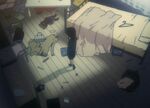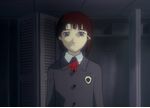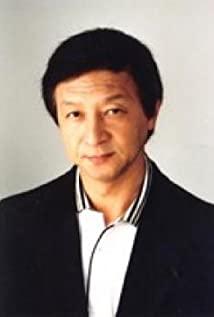When lain was released in 1998, we were still middle school students, happily watching Slam Dunk and Maruko every day. Even if we have reached the age of real uncles today, our brains who are used to watching commercial anime will not be able to understand unless psyche is implanted. The corona sound of the high-voltage line that runs through the whole play and the red and black spots in the reflection make us feel depressed and even fearful. After listening to the OP several times in a loop, my heart gradually warms up, probably a GE.
Alice keeps an eye on lain, and lain sees Alice as the only solace in the real world. The lain in the network constantly refreshes people's views on lain, lain is unmoved, but when the god lain stretches his claws to alice and causes him to be greatly hurt, lain can only rely on god and get higher authority to change people to protect Alice, but Alice was terrified of such a lain. Then Alice found that her memory had not been changed and questioned lain, but found that lain was connected to various data cables, and resolutely used her chest to seduce lain (the fog is salvation), and later the two were deceived by false gods. Yingli Zhengmei entangled with tentacles, lain was furious, and turned into a true god to destroy him. Unexpectedly, Alice was broken (Lin regrets it, so it's better for everyone to not know about some things later), for Alice, lain can only reluctantly reset the world to make Alice back to normal. At the end of the film, lain meets alice and finds that although alice is familiar with her, she doesn't know who she is.
View more about Serial Experiments Lain reviews











